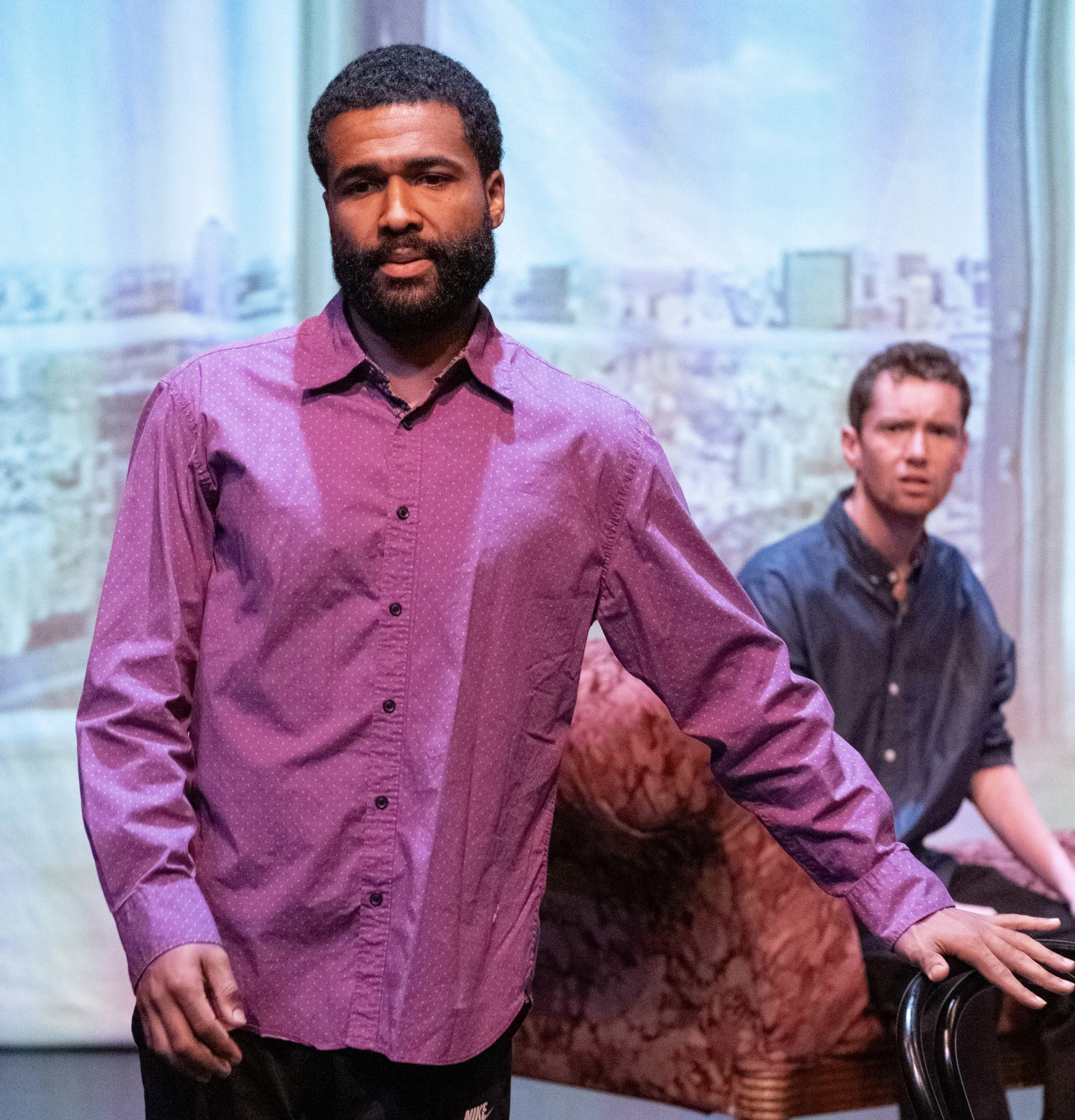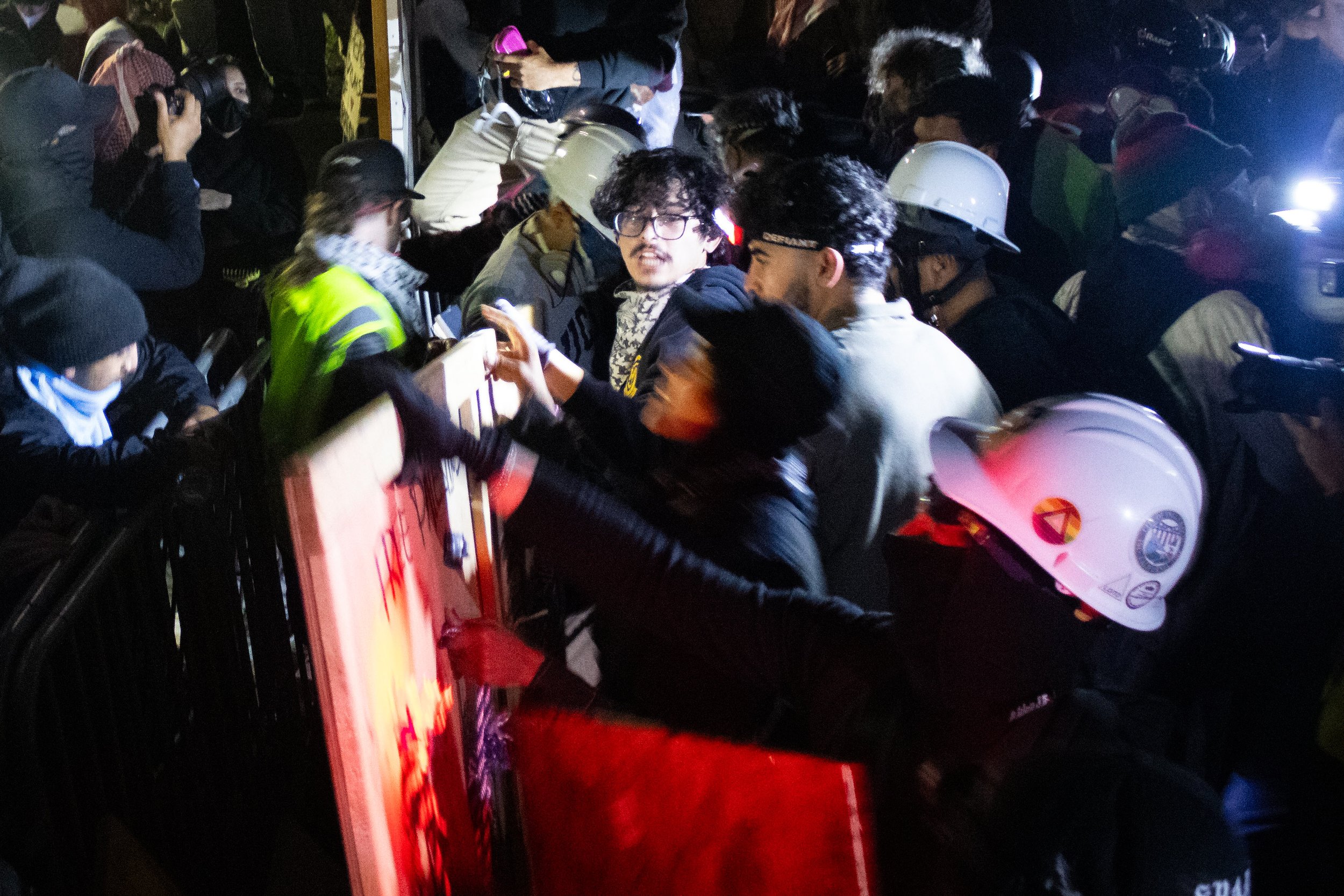Playwright or Wrong?
Cebelihle Hlatshwayo, Renee Barlett-Webber, Samayia Kirby & Victor Chambers | Editors
On the Studio Stage at Santa Monica College, in Santa Monica, Calif. on Tuesday Oct. 17, 2023, Earl Williams, playing Grady Davis in the play “By The River Rivanna”, reveals to his friend Adrian Armstrong, played by Auryn Rothwell, that he's been drawn to the land of his great grandparents. (Akemi Rico | The Corsair)
The newest theater production at SMC is steeped in controversy just days before opening night.
Senior leadership at Santa Monica College (SMC) met on Tuesday morning to discuss whether the SMC theater production of G. Bruce Smith’s “By the River Rivanna” should premiere as planned after faculty members raised concerns about the play’s content over the past week. While the production narrowly escaped cancellation, its opening night on Friday, October 20, will be sure to draw attention with the possibility of protests outside.
Written by Smith and directed by Perviz Sawoski, an SMC Theatre Director and faculty member, the story is about Grady Davis, a black lawyer and academic, who is compelled to learn about his ancestry by reading his great-great-great-great grandmother’s journal. Grady and his friend, Adrian Armstrong, are transported through journal entries to 1850, when their ancestors lived in the Commonwealth of Virginia at the “Hope Plantation.” Grady’s ancestor served as a slave, while Adrian’s was the master. In the play’s second act, it is revealed that one of the male slaves shared a romantic relationship with his male master.
Smith, who is a Caucasian male, is a playwright and former public information officer at SMC. He is currently the college’s first-ever playwright-in-residence. This is Smith’s and Sawoski’s fifth production together at the SMC theater. The idea for “By the River Rivanna” originally started from Sawoski who was inspired to produce the play after visiting a plantation in South Carolina. She then brought it to Smith to write.
Smith invited SMC’s Black Collegians program leader Sherri Bradford to attend a rehearsal on October 12. She was accompanied by Dr. Jermaine Junius, president of the Pan-African Alliance.
Junius stated that he found the show deeply distressing. He explained that sitting through the depiction of brutal lashings, even though it occurred offstage, was extremely traumatic. Additionally, the use of the derogatory "n-word" in the play was also troubling to him. He acknowledged that art can sometimes be controversial, as it encourages discussions about contemporary social issues, but said he felt that this particular show did not achieve that goal. Instead, it romanticizes a painful period in American history and ignores the harsh realities of that time.
These concerns were escalated to the SMC administration, sparking deeper discussions about the possibility of delaying or canceling the play’s premiere. According to Smith, the president of the Faculty Association Peter Morse said that the college has committed to academic freedom and demanding cancellation of the play would be censorship.
“My obligation as an artist is not to make people comfortable and this was a story I was compelled to tell,” said Smith.
When asked about the controversy surrounding the play, SMC student Henry David, who’s an actor in the production, said, “I think you just leave it up to other people as individuals to decide. We're not a monolithic society. Everybody has their own way of thinking about things and living."
The VP of Academic Affairs Jason Beardsley, Theater Director Pervez Sawoski, Black Collegians program leader Sherri Bradford, and Dean of Community & Academic Relations Dr. Kiersten Elliot have yet to respond to any requests for comment.
Click the link below to read the first 20 pages of the “By The River Rivanna” script.




